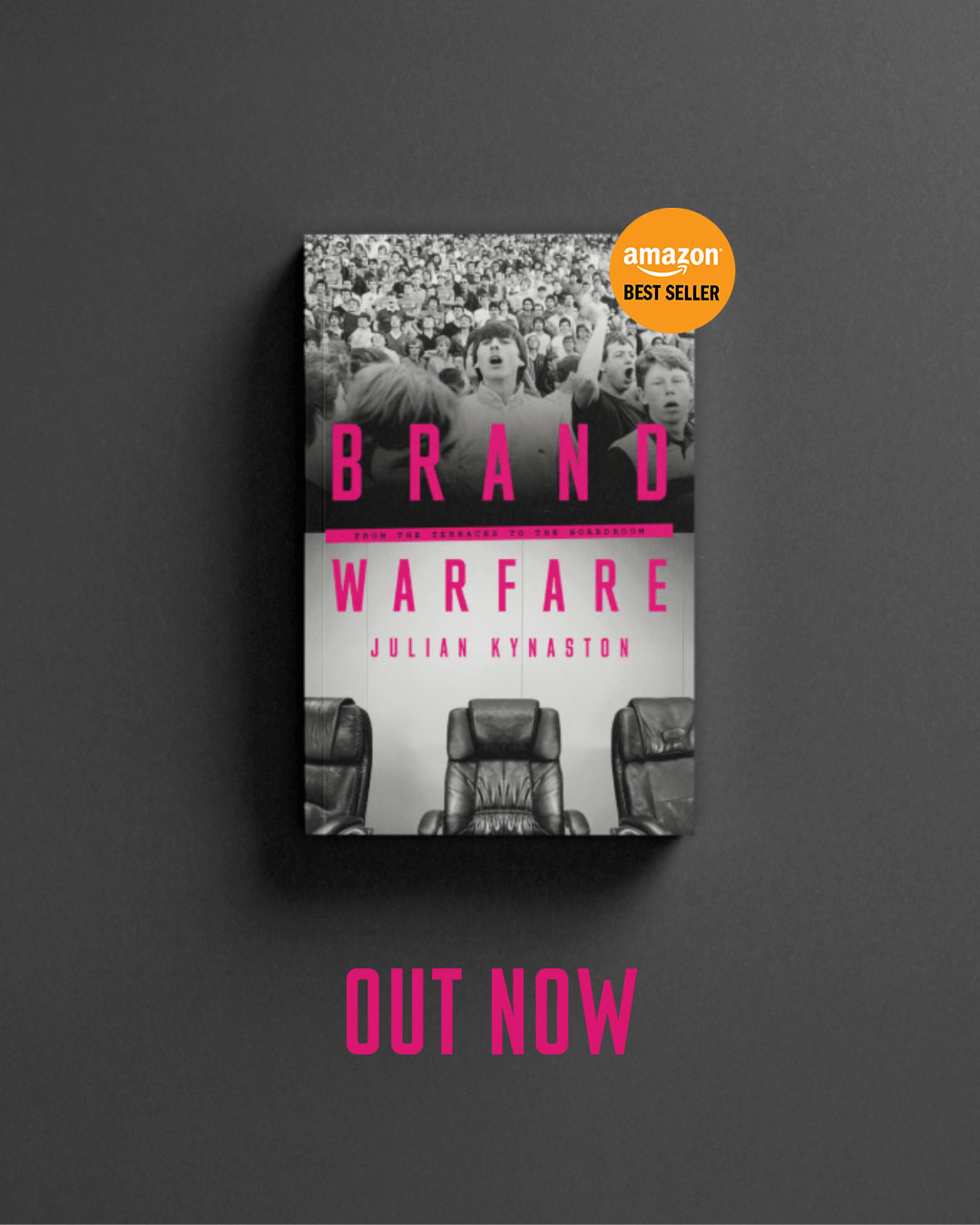Greggs and the Food-on-the-go Market
Rewind to 2006 and the frenetic world of food-on-the-go. In the queue are major players like McDonalds and Subway, and comparative lightweights such as WHSmith and Boots. Somewhere in between stands Greggs – undecided on how to get a slice of this new, manic market. Baking since the 1930s, Greggs had tasted phenomenal success. But while it was busy baking, market-savvy competitors moved in, and Greggs’ customers moved out.
Though market-spend on the ’sandwiches and savouries’ category was increasing, Greggs’ sales were plummeting. In December 2005, Subway, its main competitor, overtook Greggs in sandwich sales, and opened 250 new stores. Subway now boasted 800 busy stores, while Greggs, with more than 1000, struggled to keep pace.
As Subway grew 42% year-on-year to become the third largest sandwich retailer, Greggs suffered a drop in earnings from £ 47.1m to £42.2m. Pre-tax profits hit an all-time low, going from £50.2m in 2005 to £40.2m in 2006. The Managing Director’s report: “Trading conditions during 2006 were the most demanding we have encountered for well over a decade.”
Finally, in 2006, Greggs decided to bite back. They asked Propaganda to reverse the declining trend and give people a reason to come back to Greggs.
Bringing Greggs’ People Back
Our key objective was to bring new and lapsed users back into Greggs’ stores. To do so, we had to get an insight into the business, and the brand. Our extensive national qualitative research threw up some interesting facts:
People had forgotten what Greggs really stood for. To answer competition, Greggs had moved towards a fast food offering, obscuring its bakery heritage. In the process, their savouries – which they were loved for – were also losing sales. Greggs’ shelf space was as confused as its customers.
Solution: To be able to stand strong against Subway and McDonalds, Greggs had to create a distinct point of difference. The emotive qualities of Greggs as a bakery had to be revived.
Freshness and quality were the ingredients for food-on-the-go success. But, Greggs was now being edged out of the ‘fresh’ space by Subway, which prepared food in front of customers. And it didn’t help that Greggs’ focus had shifted to value-for-money food, which was interpreted as ‘cheap’.
Solution: Instead of great-value fast food, Greggs had to offer ‘Fresh, great-value food, delivered fast’ to cater to the increasingly health-conscious eater.
People loved the just-baked smell of a Greggs store. They fondly remembered the freshly-baked smells wafting out as they passed Greggs. But now, they needed to go in.
Solution: We needed to revive Greggs as bakers creating good, honest food for a modern market. The competition couldn’t claim baker-fresh at a national level – this was Greggs’ USP.
Creating a Unique Brand Positioning
The insights, unearthed by our research, crystallised into a clear, simple strategy.
Consumer insight: “If I can grab something quick, that’s been baked fresh today, it will be more tasty and satisfying.”
Product differentiator: Baker-fresh food
Brand proposition: Baker-fresh food on the go
A clear point of difference, grounded in Greggs’ heritage and product. We now had to develop an emotional attitude for the brand – one with modern relevance.
‘Good-honest’ captured the familiarity and warmth of a local bakery, summed up the desire for high quality for the price paid, and reflected the down-to-earth brand attitude. A new brand endline was developed to reflect the positioning: ‘Greggs the Bakers: Ready when you are’.
The Launch Campaign 2007:
Bringing the Brand Positioning to Life
Historically, Greggs’ advertising had been product and offer-led, failing to create consumer affinity with the brand. Our creative strategy needed to address this while driving Greggs’ new positioning home.
We realised that for most of the nation, Greggs had been part of growing up, and that included celebrities. It was frequently mentioned in the media by A-listers like Sara Cox and Mila Jovovich. Now, we wanted an iconic celebrity to be a beacon for the brand and capture its personality: good, honest, down-to-earth. But one who wouldn’t overshadow the brand – this needed to be Greggs’ campaign.
Propaganda came up with the perfect candidate: Paddy McGuinness, half of one of the UK’s most successful comic duos (with Peter Kay), known for his tongue-in-cheek, lovable sense of humour. Research proved he appealed nationwide, to men and women.
What if we created a fictional role for Paddy? One that showed him indulging his passion for Greggs’ freshly baked food during his day.
The creative challenge was to take the olfactory insight from research about the ‘baker-fresh smell’ and translate it across visual and aural media. 70% of memories are evoked through smell, so the team developed a route that centred on the ‘Greggs aroma moment’, communicated through the ‘Satisfied Sniff’.
Each creative execution saw, or heard, Paddy stepping into Greggs and inhaling the delicious smell of baking. This was followed by a dreamlike sequence as Paddy found his Shangri-la through the smell and taste of Greggs’ freshly-baked food. Research demonstrated this was critical in communicating Greggs’ difference.
This was supported by a radio campaign, with Paddy as a Greggs FM DJ. The focus was still on baker-fresh, brought to life by Paddy’s comic delivery.
The strategy also flowed into POS and outdoor, where the objective was to raise perceptions of Greggs’ quality through strong food photography and by promoting product benefits.
Another significant element of the campaign was the launch of a microsite featuring Paddy, in synergy with TV and radio, inviting consumers to find out about Greggs’ products, play online games, take up promotional redemption vouchers and enter competitions. This was all aimed at involving consumers further with the brand and creating an emotional link.
Launching an Integrated Media Plan
The creative elements were pulled together through an integrated media plan. The major factor in developing the plan was Greggs’ regional focus. Scotland and the North East were the heartland, with high store volume, strong awareness, positive brand perception and loyal usage. The North West and Yorkshire were relatively mature, with good store penetration, strong awareness and usage. The Midlands and Wales & West regions had experienced a decline in awareness and regular usage after a period of limited advertising. London and the South East had experienced a growth in the number of shops, but awareness and usage were minimal. Our media strategy had to answer all the different levels of awareness, and reach these regions.
Working with our media partner, the team developed a media plan consisting of an overarching national solution, supported by regional media to cover regional differences.
National television starting in April 2007 supported all regions, with the less mature regions benefiting from exposure that would not have been affordable on a regional basis. A combination of Terrestrial and Multichannel stations were selected to deliver high frequency of exposure. 40sec ads were placed at the campaign launch and during high-profile football games to maximise impact. 30sec and 10sec were combined for the remainder of the campaign, with 10sec gradually up-weighted towards the end of the campaign, to elongate the period and maximise frequency.
The regional media solution consisted of additional TV to deliver a heavyweight campaign in the Midlands and Wales & West (to answer the declining use and awareness). Radio campaigns supported tactical product launches in Scotland, NE, Midlands and Wales & West – with heavyweight breakfast and pre-lunch airtime. Proximity outdoor activity (6 sheets and phone boxes within 300m of stores) supported store awareness at the lunchtime decision-making junctions in key cities in the Yorkshire and NW regions. Key areas of North London and the South Coast were supported with a high quantity of outdoor activity.
In addition, a sales promotional plan was implemented alongside the advertising campaign, targeting a 1.2m leaflet drop in Yorkshire and NW. Sampling and ad bikes outside shops helped hammer home the brand message and grab people’s attention.
Results: Getting a Slice of Good, Honest Success
The exhaustive research and work that went into Greggs’ campaign paid off. The positive effect on the brand was immense, both in terms of consumer perception and sales. All achieved in an exceptionally short time span.
The effectiveness of the strategy and campaign was assessed through a quantitative brand and ad tracker, and by monitoring sales and the uptake of promotions.
Brand and advertising response:
The January Omnibus showed that National Spontaneous Awareness of Greggs had increased from 24% in August (during the pre-campaign period) to 29% after our October campaign.
Greggs’ commercial was No. 13 in a list of 20 most recalled ads in Adwatch, the weekly ad-recall section in Marketing magazine. It beat bigger national campaigns by agencies like Fallon, BBH and JWT, London.
There was a very strong awareness of Greggs’ key messages, with 66% saying it communicated ‘freshly baked’, and 58% saying ‘food-on-the-go’.
44% mentioned Paddy as one of their main reasons for liking the ad, a key reason the ad cut through the clutter.
Post-campaign, Greggs’ scores for ‘out of touch and traditional’ decreased whilst ‘modern and up-to-date’ rose, with a migration upwards in the user groups.
Most importantly, the campaign resulted in the return of Greggs’ lapsed and occasional users – one of the campaign’s main aims. Amongst males, 9% of occasional users, and 2% of regular users came back to the stores. Amongst females, 12% of lapsed users, and 11% of occasional users returned.
Sales:
After the first burst of advertising in April, Greggs’ shareholders were given a report they could cheer about. Like-for-like sales had gone up by 4.9%, despite challenging weather in the weeks prior to the report. Their operating profit had gone up by a huge 24.5%. By the end of the first half of 2007 sales hit £256m, up 5.2% on 2006, with profit up 18.3% to £14.8m.
In 2005-2006, Greggs’ savoury sales in particular had been plummeting while the savoury market was booming. To address this, our second burst of advertising focussed on Greggs’ savouries, specifically targeting their top selling products – sausage rolls, steak bakes and cheese & onion pasties.
The result? Savoury sales in individual regions shot up by as much as 22%. National sales of sausage rolls increased 20%, steak bake 28% and C&O pasty 22% – with a national increase in all savoury sales of 15%. This resulted in a 9% increase in sales across all products nationwide.
Sales continued to improve beyond the campaign period, resulting in like-for-like sales in the second half of 2007 experiencing a 5.8% increase.
By the end of the year Greggs had a brand new energy. Final trading reports in 2007 showed a sales increase of 5.3% and analysts had revised upwards their profit forecast for the year. Greggs image in the market had improved, with people coming back to its stores, and spending more on average. This saw its share price shoot up from 3997p in Sept 06 to 5324p in Sept 07.
Baking a Brand Better
This new brand strategy formed a strong foundation for growth, and established a strategic approach that fuelled the focus of the business during the difficult two-year trading period that followed in 2008 and 2009.
During these tough market conditions Greggs stayed true to their core brand strategy, single-mindedly focussing on their bakery credentials and the ability to deliver affordable, quality food to the nation. They continued to invest in national advertising, with the overarching aims of changing customer perceptions of the brand and communicating the real Greggs difference.
To meet consumer demands throughout the UK economic downturn, campaign messages were created to target credit-crunched customers. These focussed on special offers and value for money – always underpinned by their bakery credentials and improved quality messages.
Following new creative development in 2008 and national brand campaign bursts in April and September 2009, Greggs finished this difficult trading period on a high, with a 7.2% jump in sales in the six months to July 2009 and the calendar year as a whole seeing total sales increase by 5%. Despite the credit crunch, the financial year for 2009 saw Greggs Plc turnover £658m and deliver a pre-tax profit of £49m.
View Portfolio >


